Geekom AS 6 Performance
The AMD Ryzen 9 6900HX is a CPU that we have seen a number of times before.
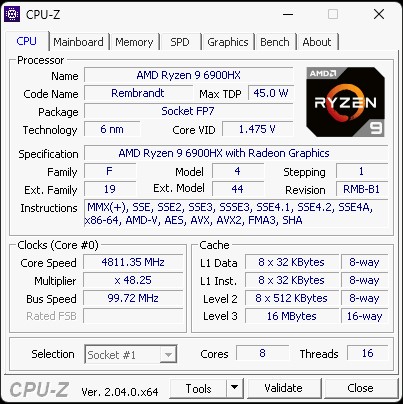
To be clear, for normal desktop tasks like working with Microsoft Office or using browser-based applications, this is going to be more than enough performance with clock speeds regularly in excess of 4.8GHz. Very few users would perceive a difference between this and a larger desktop for those types of applications.
Python Linux 4.4.2 Kernel Compile Benchmark
This is one of the most requested benchmarks for STH over the past few years. The task was simple, we have a standard configuration file, the Linux 4.4.2 kernel from kernel.org, and make the standard auto-generated configuration utilizing every thread in the system. We are expressing results in terms of compiles per hour to make the results easier to read:
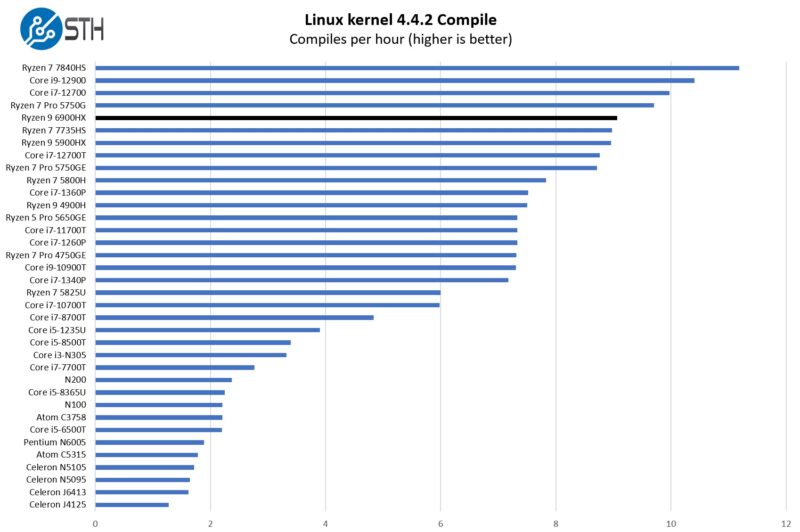
The Geekom AS 6 with the onboard AMD Ryzen 9 6900HX is a very fast solution with eight AMD Ryzen cores.
7-zip Compression Performance
7-zip is a widely used compression/ decompression program that works cross-platform. We started using the program during our early days with Windows testing. It is now part of Linux-Bench.
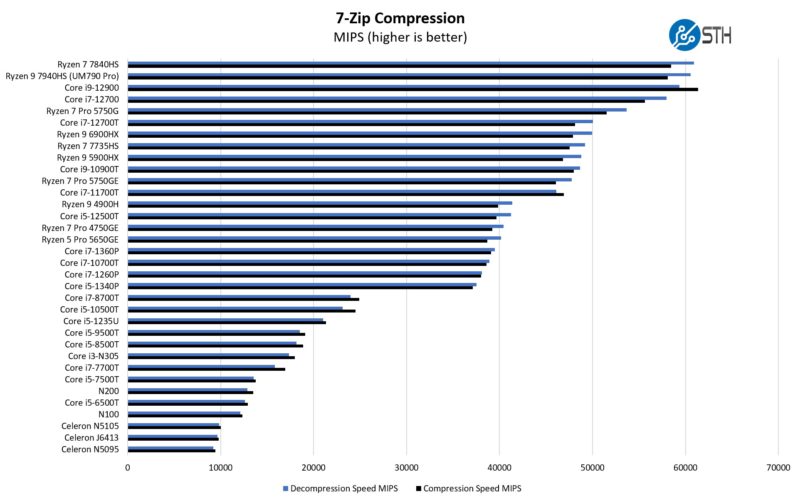
We have not tested the AMD Ryzen 7 7735H, but we have tested the AMD Ryzen 7 7735HS version and they are very similar CPUs.
OpenSSL Performance
OpenSSL is widely used to secure communications between servers. This is an important protocol in many server stacks. We first look at our sign tests:
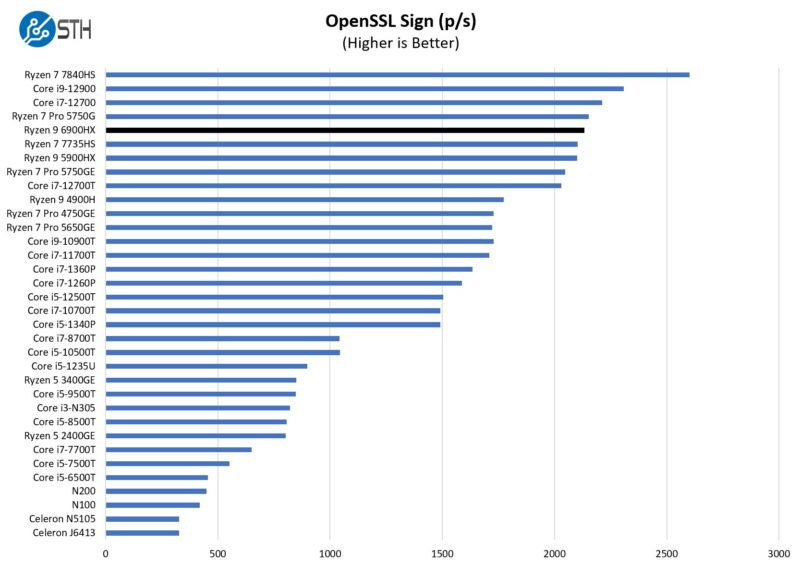
Here are the verify results:
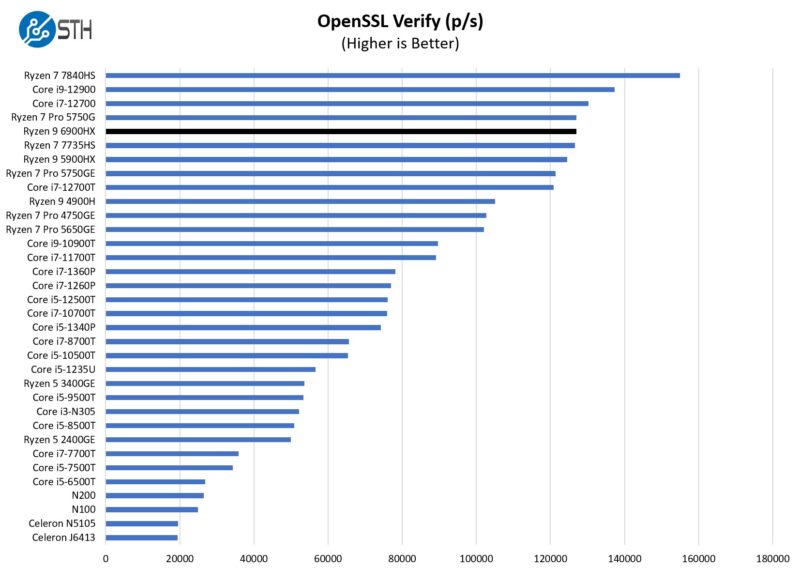
Performance is not quite where the new Zen4 cores are at, but it is still very good. If you are coming from a 3-4 year old desktop, this is a much faster CPU.
Geekbench Performance
Just for some quick point of comparison, here is the system compared to the Beelink GTR6 that has the same CPU in Geekbench 5:
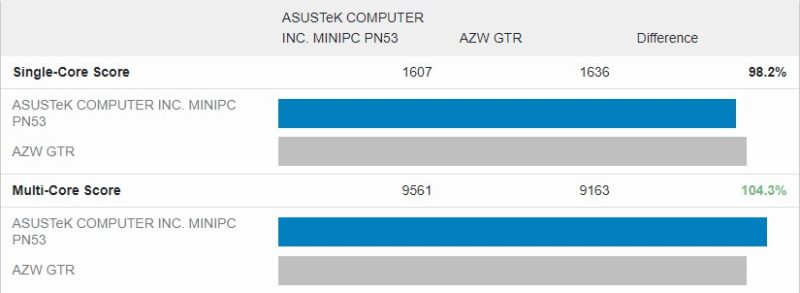
Performance was very close to other AMD Ryzen 9 6900HX systems we have seen. Even though some of the newer mini PC vendors tout cooling as a major differentiator, Geekom’s ASUS system base performs very well.
Kingston NV2 NVMe SSD Performance
We mentioned this earlier, but the SSD this unit came with is a Kingston SSD, but this is far from the fastest PCIe Gen4 NVMe SSD.
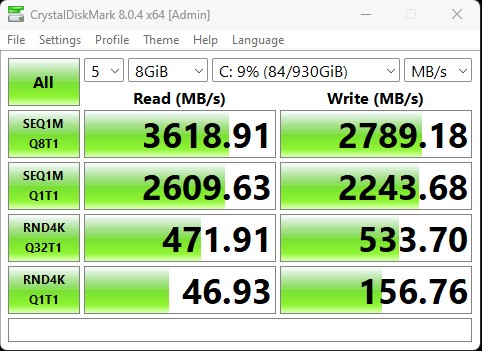
Speeds are OK, but they are far from the maximum speeds on the PCIe Gen4 interface.
Next, let us get to the power consumption and noise.

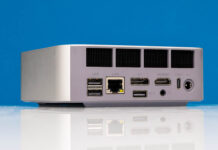
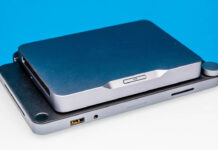
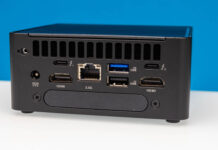
I still don’t get it. You can get a straight ASUS mini for less (or the same, whatever floats your boat, or heck, more), without adding the no name 3rd party that adds….? What? What does buying from them get you that buying from ASUS doesn’t? And how does Geekom, qualify as a known vendor and more than a Topping or Miniswhatever?
Paying the Windows tax? Nope, not for me. I have not done that in ages and will not start doing it again just because some vendor is too lame to offer a “No OS” option.
A name brand like ASUS would be expected to use name brand components and charge appropriately for it…and they do just that in this case.
Using a mini-box like this as a server? A clear description of what STH means by “server” is required before I can comment, but I will like say, “Nope, not for me”.
What I would really be interested in seeing is a mini-box that is like 1 step up from a Raspberry Pi and based on x86. The RPi is useful in some applications, but it’s lack of availability has been a pain in the back side. All of the promises of “supply chain improvement” were torpedoed, in my opinion, when RPi stated they were focusing heavily on their “business orders”. I guess peon little guy customers a meaningless to them now that they wear Big Boy Pants thanks to their boards that are used worldwide?
Some “not-really-name-brand” mini x86 devices & boards (a step below this ASUS product) come from overseas companies and incur “overseas pricing” due to support & warranty hassles, exchange rates, import duties, shipping costs, and so on. That makes purchasing a Mini-ITX board (which is the next step up) from a local retailer (online or otherwise) actually look affordable, even when you add in the necessary bits to make it useful. Even that oddball sized mini-STX format looks kinda sorta reasonable to me, and it comes in a “No OS” option too!
In response to “The RPi is useful in some applications, but it’s lack of availability has been a pain in the back side,” it would appear that the shortage of Pi 4B computers is essentially over. Whether these make any more or less of server than a Geekom is not clear.
For me server hardware needs some sort of remote management capability. While the Pi already has a few configuration settings stored in its firmware, I suspect the Geekom firmware has many setup screens. Is it possible to change these settings without connecting a monitor? Wake on LAN is just not the same as IPMI, though POE can be a little more helpful when things go wrong.
The other feature I expect on a server is the ability to monitor ECC errors. On an x86 system this would be provided by ECC DIMMs. The on-die ECC RAM in a 4B or on a DDR5 DIMM is not quite the same thing. Is it possible to query a RAM chip with on-die ECC to obtain it’s error detection and correction rates?
Also, how do you mount a Geekom in a standard data center rack? There are actually solutions to mount a bunch of Pi computers in a 19″ rack, but I’ve not seen anything for mini x86 systems. Do people just put them on a shelf?
There are two more things for a home lab that I find important: repairability and price. The Pi is cheap. A typical setup consists of a POE board and the system board. Repairability of the system board is impossible, but if it breaks one doesn’t have to replace the POE hardware and vice versa. The Geekom is too expensive to consider not repairing. Are spare motherboards available? If even a fan gives out, are replacements easily found?
“Power consumption & Noise” and yet not a word is said about noise? Did I miss something here?
FWIW, you can fit ECC RAM in the PN53 according to the ASUS release notes…
PILISA
Asus is not a brand I would buy for anything with a motherboard at the moment or (near) future. And the warranty is still done by a “unknown” brand.
Better buy a barebone um790 and add brand components that are fast. With a newer igpu with longer driver support.